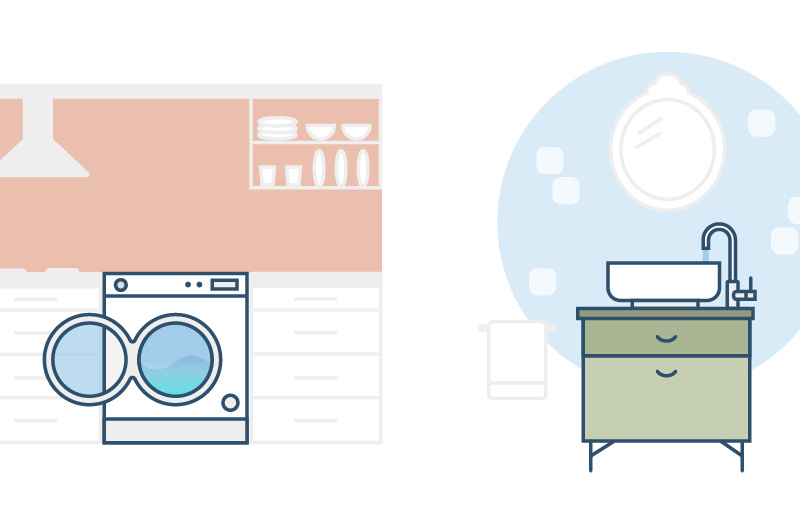Salford students make splash with great ideas during university challenge on Britain’s wastewater issues

Even if your company is armed with decades of expertise and countless excellent ideas, it may only take a fresh face and new way of thinking to turn your own outlook upside down – in the best way, of course!
With this in mind, Lanes Group prides itself on staying open-minded, and as part of our commitment to work with universities on issues that face the drainage industry, we got together with some of the brightest students from the University of Salford for our first Wastewater Hack Competition!
About the competition
The aim of the challenge was to have students come up with innovative solutions to a number of wastewater problems. From reducing water consumption and reducing the sector’s energy use, to consumer education and even rethinking the toilet, there were plenty of possibilities for our young experts to sink their teeth into.
Runners-up
Inventive ideas were forthcoming; great ideas that made the Lanes shortlist included:
Cynthia Enebechi (studying a Safety, Health and Environment MA): Reducing water consumption
- Challenge the idea of “constant water availability” by introducing daily water limits to households, e.g. programming no more than five litres of water to be used per shower.
- Designing washing machines and dishwashers to only operate on full loads, or with maximum usages in a month.
- Government incentives for households to install low-flush toilets and taps, or rainwater-harvesting systems to reduce reliance on mains water supply for toilet flushing and laundry.
- Water metering in regions of high water demand, such as the south-east and east of England.
Rachael Fraser (Zoology): Rethinking the toilet
- Changes to water use in toilets, replacing the old method of filling toilets with water (which creates a suction effect) to a faster, lower water system with assistance from a renewably-powered pump to replicate the current situation.
- The fitting of small grates at the bottom of a toilet bowl to prevent unsuitable items being flushed away. These would be located deep enough in the toilet to avoid user override, but not deep enough to cause clogging; the grate would be designed to avoid affecting the toilet’s primary use.
- Developing systems with councils and private companies for the disposal of sanitary waste, such as dedicated and discreet bins, and additional information detailing what can and cannot be flushed.
Our winners
After deliberation from our expert panel of judges, three victors were chosen. In reverse order, here are our deserving winners!
Third place: Matthew Holroyd (Environmental Management): Reducing water consumption
Our third-place finalist, Matthew, focused on the amount of water that could be reduced in washing machine use. He suggested placing low-flow, high-pressure nozzles on the inside of the drum, and cleverly proposed the introduction of a UV light inside the drum to kill bacteria, thus reducing the time a washing cycle would take.
Matthew also recommended that all new home appliances should have low-flow high pressure nozzles, while hot and cold taps run through the same tap, as waiting for the correct temperature can cause a lot of waste between two separate outlets.
Second place: Mason Dillon (Zoology): Consumer education
Our second-placed entrant, Mason, suggested contacting local councils to introduce a small household oil and fat bin to go alongside those already in place for recycling initiatives. These small bins could be picked up as part of the collection rotation taken to a recycling centre; alternatively, bins could be placed at supermarkets for people to dispose of oils and fats when needed.
He suggested that councils put a policy in place for garages and car washes to monitor and record waste oil, and supply them with oil bins for their the premises. Finally, Mason wanted to draw attention to the initiative with Facebook campaigns to show the damage caused by putting oil and fat down the drain, using shock and surprise tactics to underline the good deeds done by recycling waste oil.
Winner: John Kearney (Biology): Consumer education
Finally, our winner, biology student John, led from an anecdote about using oils for cooking; his primary issue with changing oils in fryers and chip pans at home and in work was knowing what to do with the old oil. Going straight to the source, he said that producers of these oils should change the design for their bottles to provide an innovative solution.
By creating wider mouths for bottles, and by using heat-resistant compounds, these bottles could have a half-half segmentation, where one part contains new oil and the other provides a place to pour old oil. This allows consumers to easily deposit used oils in a bin, or in a designated recycling location.
Further addressing the disposability argument, John insightfully added that local chemical companies could be contacted to see if they had a practical use for used fats, oils and grease, and if they would consider opening an area for the public to drop off their used fats. A financial incentive could sweeten the deal, if they were of real value, and the initiative could dramatically reduce the volume of fats, oils and greases in sewer systems.
We were incredibly impressed by our entrants’ concepts, and we believe these ideas could pave the way for some truly incredible solutions to common drainage problems. After the event, Michelle Ringland, our head of marketing, said: “We believe it’s important to engage young people with the issues affecting our industry, as these issues can have a huge knock-on effect on all of our lives.
“The students’ ideas have been impressive, showing how if we put our minds to it, there are so many inventive ways we can potentially help tackle critical wastewater problems.”
We’re planning on more projects like these in the future. If you’re part of a university that wants to work with us, or you’ve got some great ideas of your own, don’t hesitate to get in touch – we really love to support and showcase new ideas, and hopefully turn them into the solutions of tomorrow!










